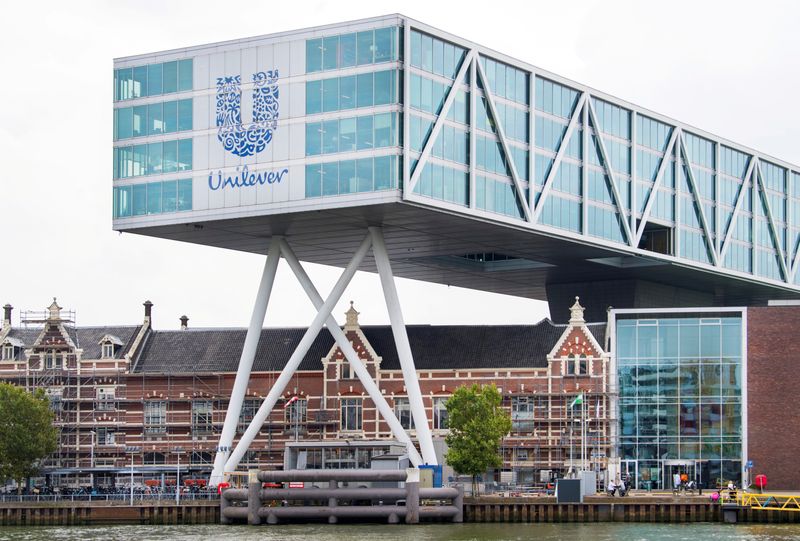AMSTERDAM (Reuters) – A top Dutch legal body said on Friday that it was probably not “legally sustainable” to levy a one-time tax on Unilever <ULVR.L> over its plan to unify management in a single London headquarters.
The bill by the opposition Green Left party for an “exit tax” is one of the few remaining hurdles for Unilever as it simplifies its Anglo-Dutch structure. British shareholders are due to vote on the move on Monday.
Unilever has said the tax would cost it 11 billion euros ($13 billion) if enacted, enough to derail unification.
The Dutch Council of State, which advises parliament on the legality of bills, said on Friday the proposed tax would violate basic principles of the rule of law.
If enacted, “the chance that this proposal will turn out to be not legally sustainable is so great that (we) consider introducing it irresponsible,” the Council said in its advice, which is not binding but nearly always heeded.
Green Left said it was not abandoning the plan and it re-introduced the law with modifications.
“Unilever is threatening to leave the Netherlands with its pockets full so that shareholders can avoid taxes,” bill author Bart Snels said in a statement.
Unilever said on Friday it was studying the advice and modified bill. Parliament has not yet set a date to debate the bill, making it unlikely it could be passed before Unilever’s unification is complete on Nov. 29.
“The boards intend to proceed with their proposals provided that, in the boards’ view, unification remains in the best interests of Unilever, its shareholders and other stakeholders as a whole,” Unilever said.
Unilever’s unification would end 90 years as a hybrid since Britain’s soap-making Lever Brothers merged with Margarine Unie in the Netherlands.
The maker of Dove soap, Hellman’s mayonnaise and Ben & Jerry’s ice cream says its dual structure hampers its ability to conduct acquisitions and disposals quickly, such as the planned sale of its 3 billion euros per year tea business.
The final steps to complete the cross-border merger to unite its entities include hearings by the High Court in London on Oct. 23 and Nov. 2, with the Dutch NV shares ceasing trading after Nov. 27.
(Reporting by Toby Sterling; Editing by Edmund Blair)





















